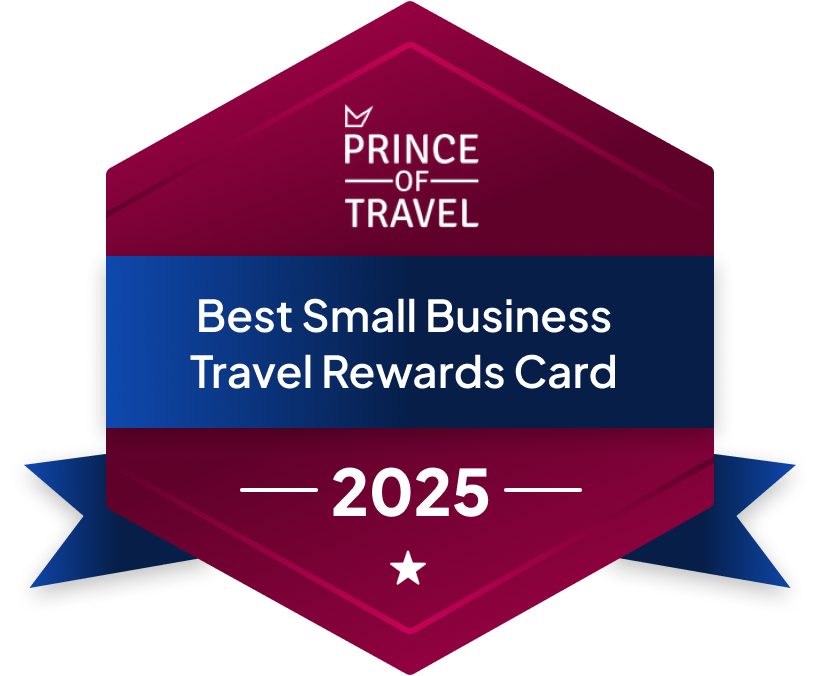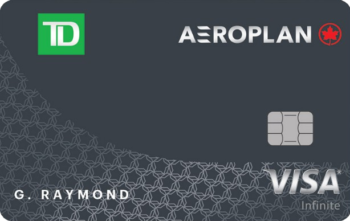While some airline programs offer discounts on cash fares for children, this is generally not the case for award tickets (with the exception of Flying Blue). Thus, flight awards for older children are pretty straightforward – if they’re over the age of two, you’ll be redeeming the same amount of points for them as you would for an adult.
However, if you’re travelling with a child under the age of two, the situation is quite different, and in fact, he or she may be able to fly almost for free.
In this article, we’ll take a look at how different award programs price infant award tickets, as well as some additional considerations.
In This Post
The Basics
Let’s start with the definition of an infant in the aviation world. For most airlines, an infant is any traveller under the age of two at the time of departure, while a child is typically any traveller between the ages of 2 to 11.
If your infant happens to turn two between flights during your trip, then they’ll no longer be considered an infant for the remaining segments of the itinerary that occur on or after their second birthday, and will require their own seat. In fact, some airlines will even consider them a child for the entire booking, thus requiring you to redeem a full award ticket for them.
If you find yourself in this situation, it may be better to book two separate one-way bookings so that you get the infant fare on departure, and a child or full fare on return. Some airlines will manually price the outbound flight as an infant and the inbound as a child in these situations.
Seating Options with Infants
When travelling on an airplane with an infant, you have one of two options:
- Infants can occupy their own seat, which in most cases they’ll be charged the full adult award fare (although there are exceptions, like with Emirates). If they occupy their own seat, then you’re required to bring along a car seat or an approved child aviation restraint system.
- Infants can also remain an infant on lap, in which case they’re seated in the lap of an adult. Some airlines provide a lap belt extension for the infant to use. If your infant is young and small enough, airlines may be able to provide bassinets in designated bulkhead seats.
For the purposes of this article, we’ll be looking specifically at travelling with an infant on lap.
The Cost
In general, airlines have adopted one of five approaches for charging lap infants:
- No fare
- A percentage of the adult revenue fare
- A percentage of the standard award fare
- A fixed revenue fare
- A fixed award fare
Keep in mind that most airlines still charge the applicable taxes, fees, and surcharges on top of the aforementioned fares (even in cases where no fare is charged), so take that into consideration when looking at the overall cost for your infant.
Other General Caveats
- Booking: Some airlines allow booking online, while other require you to call in.
- Minimum age of infant: With a few exceptions, most airlines require infants to be a minimum of one week old before they can fly.
- Adult-to-infant ratio: Most airlines only allow one lap infant per adult. If you have additional children, they’ll be required to have tickets for their own seats.
- Minimum age of adult: Be sure to check the age threshold to be considered an adult, as it varies by airline. Some airlines will consider a 12-year old an adult, while others will require someone 18 yrs old or above.
- Domestic / international / partner flights: Some airlines have differing policies for domestic and international itineraries, and also those on their own routes and partner routes. We’ve tried to list most of these differences in the chart below, but be sure to check with the airline program for the most up-to-date information before booking.
- Boarding pass: Generally speaking, infants need a paper boarding pass, so you’ll have to visit the airline’s kiosk at the airport for this (i.e. online check-in not available).
Lap Infant Charges for Popular Airline Programs for Canadians
Most airlines charge taxes and fees along with infant fares, though these are typically waived for domestic flights. Some programs also offer discounts on these additional charges.
Worth noting is that not all airline programs permit infant award bookings on flights operated by partner carriers. This information can be difficult to find and a source of confusion for many. To help simplify your planning process, I’ve included it in the chart below for your reference.
Strategic Booking
The chart demonstrates substantial variation in infant award redemptions and costs across different airline loyalty programs. Air Canada Aeroplan, British Airways Executive Club, Qatar Airways Privilege Club, and Virgin Atlantic Flying Club come out on top with low redemption rates for infants.
If you’re looking to book in a premium cabin, you’ll likely want to avoid programs that charge a percentage of the revenue fare. Considering a one-way international business class ticket can cost you several thousand dollars or more, an infant ticket could cost you several hundred dollars.
Lastly, don’t forget to compare the infant fares on a particular airline across different programs within an alliance.
For example, if you’d like to book a business class ticket for yourself on Singapore Airlines from New York to Singapore and want to add a lap infant, you could book directly through Singapore Airline’s KrisFlyer program.

For the above flight, you would expect to pay 10% of the cash fare for your infant plus any taxes and fees, so approximately you’re looking at paying $600 (CAD). Because Singapore Airlines is part of Star Alliance, you could book an infant ticket for the same flight through Air Canada’s Aeroplan program (assuming there’s award availability) for only $25 (CAD) or 2,500 Aeroplan points. That’s a significant cost savings.
Booking a Separate Seat
For those focused on points optimization, booking a lap infant typically makes the most sense. Yet there are scenarios where spending extra points for a dedicated seat could be worth considering.
The decision largely hinges on comfort factors. While managing a lap infant in economy is doable for shorter flights, longer journeys might warrant booking a separate seat, especially if you’re traveling solo without anyone to share infant-holding duties.
This becomes particularly relevant with larger babies or those approaching their second birthday. Since they likely won’t fit in any airline bassinet, you’ll be solely responsible for holding them throughout the flight.
Energetic infants present another consideration – having an extra seat provides additional space for movement. Being able to secure them in an approved car seat periodically can be invaluable for both you and fellow passengers.
It’s worth noting that many airlines prohibit car seats in business and first class cabins, leaving lap infant as the only option. However, given the spacious nature of these seats – often with lie-flat capability – accommodating a lap infant becomes much more manageable.
As a final point, if you’re flying solo with multiple infants, most carriers require purchasing a separate seat for any additional infant beyond the first one anyway.
Conclusion
Travelling with an infant can be challenging, but at the same time, it can amount to some great savings if you’re prepared to travel with them as a lap infant.
Rather than paying for an extra standard award redemption, it’ll either be free or cost you a fraction of the price of the adult revenue fare, whether you pay with money or miles.
Don’t forget to compare the cost between different airlines and programs for your flights, as an infant ticket will cost less with some programs than with others. Hopefully the chart above can serve as a quick reference to help jumpstart your travels with the little one!




















Hi Amy, I recently booked business class award to Taiwan on EVA air with aeroplan and got charged $25+taxes to add a lap infant. The total came out to about $155. Is this right or did the agent not know what they were doing? Seems like it should be a flat $25 based on your post?
Hi Ella, are you sure that doesn’t include the taxes for your own adult ticket?
Hi Amy, thanks for the reply and I’m positive the $155 was all for the baby because I booked my own ticket separately online. I paid my taxes online and I called into Aeroplan the next day to add the baby. That’s when they separately charged my card the $155
When I do a search on Aeroplan for a single
adult ticket YYZ-TPE and then do a single adult plus lap infant I’m seeing the same amount in taxes and only an additional 2,500 Aeroplan points. Maybe call Aeroplan to clarify why you have the extra charge.
I phoned Aeroplan and they said they couldn’t get a break down of the amount I paid and said that the cost depends on the route. Some international routes have taxes added on.
Hi Amy,
For Alaska miles on partner airlines such as japan airlines, all infants under 2 will effectively need to pay an adult fare, is that correct?
Thanks
It varies depending on the partner airline. Some airline partners they can’t even add an infant. With JL, the cost is 10% the revenue fare.
Hi Amy,
I’ve been doing some research on this. Do you know which Oneworld partners can add an infant on the ticket after you’ve booked with AS? As you just mentioned, JL seems to be able to.
Hi Amy,
thank you for your post. I am looking to redeem Aeroplan pts and use eUpgrade credits to upgrade to business class. Do I book for 2 adults and use eUpgrades first, then call in to add a lap infant? Or do I have to call in to book all 3 passengers?
Thanks!
Hi Angela, I think either way should work, but I would probably book and eup the adults first (I’m assuming you’re eup’ing from lat fare) to secure the eup space, then add the infant… less chance for IT mishaps this way.
Hi Amy,
Thank you for the detailed information and insights. Really helpful. One quick correction – United Mileage Plus does not charge lap infant fee only within US/Puerto Rico and US VI. Canada, Mexico, and all other international destinations are still subject to a fee of up to $250 depending upon destination and class of service. Here is a excerpt from United’s website (“Infants traveling internationally (including to Canada, Guam and Mexico) without a seat are required to have a purchased ticket and are subject to infant fares and taxes”) and I confirmed this when I was searching for award tickets to Hawaii – searches originating or ending in Canada had $100 fee per infant for business class awards + taxes.